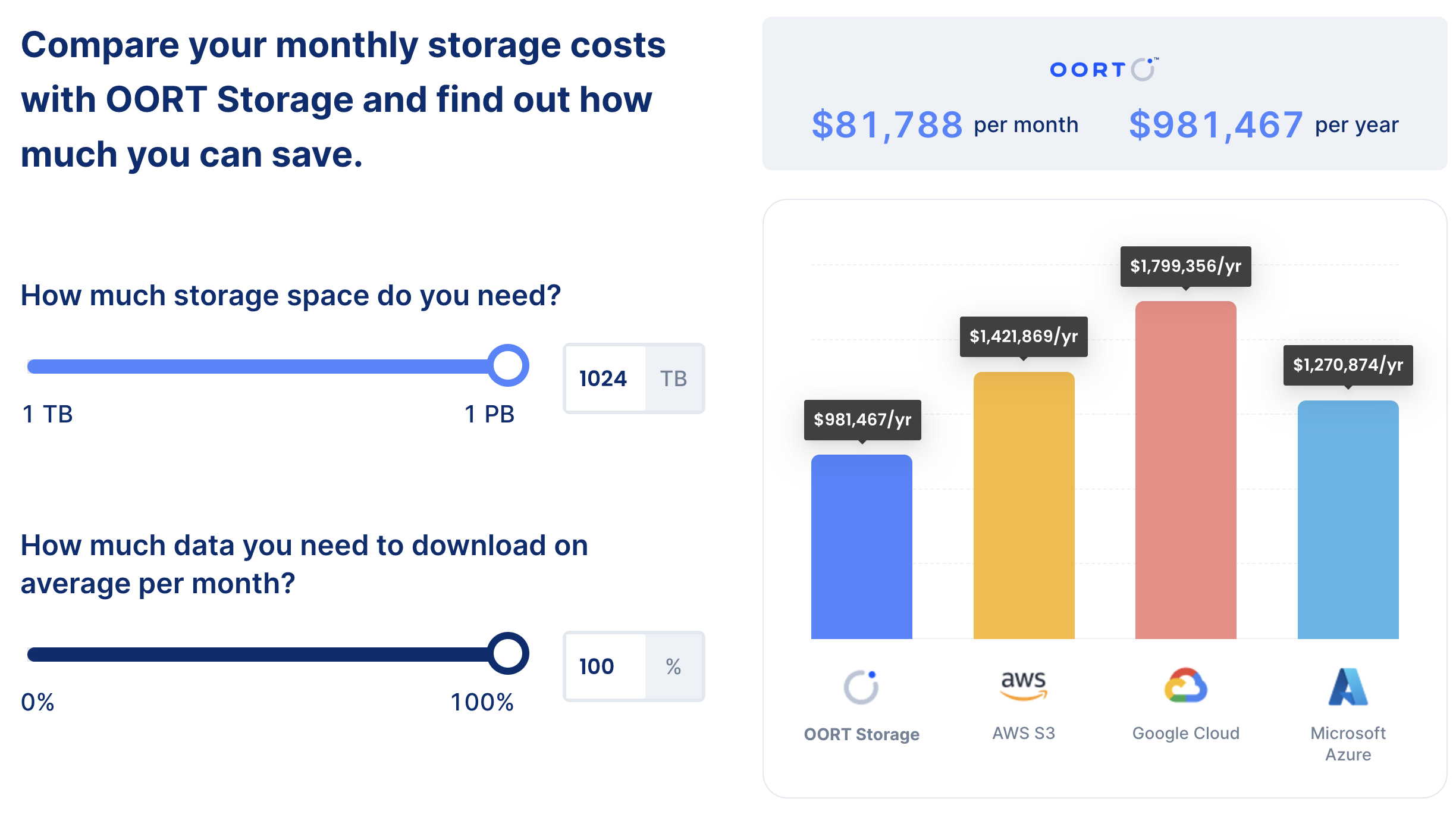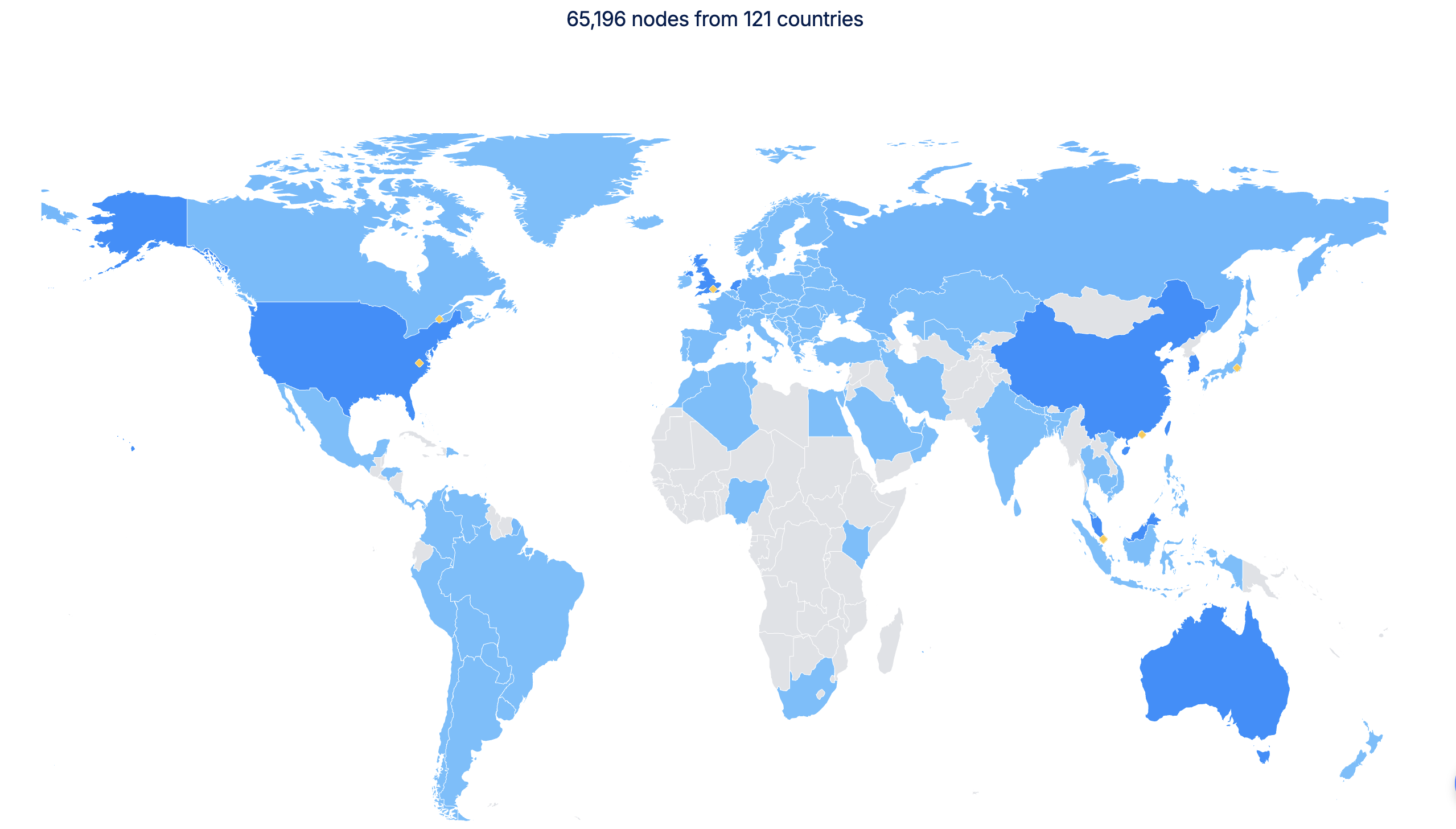Author: Nancy, PANews
Once upon a time, software swallowed the world. Now, AI is swallowing software. Standing at the historical river of technological progress, the revolutionary scroll surrounding AI large models is rapidly unfolding, opening up new application spaces at an astonishing speed.
Recently, Binance founder CZ pointed out when discussing AI that "AI tagging and data processing are very suitable for being done on-chain, enabling instant (micro) payments through cryptocurrency while leveraging global low-cost labor without geographical restrictions." This viewpoint has added fuel to the already hot crypto AI track and has made crypto projects like OORT, which release related products, once again the focus of the market.
As an early builder of DeAI (Decentralized Artificial Intelligence), OORT, funded by giants like Microsoft and Google, is a pioneer in the decentralized AI field, creating decentralized trust infrastructure for the AI era. While achieving commercial applications, it promotes the democratization and popularization of AI development processes through innovative DeAI solutions.
Unlocking AI Potential with OORT's Three Flagship Products: Data, Storage, and Computing
Since ChatGPT sparked the wave of AI large models, major tech giants have been competing to "mold" models, leading to a "hundred model battle" in the market. Currently, "data" has become a crucial battleground in AI large model training, as publicly available data for collection has been exhausted globally.
For all enterprises worldwide, data collection, storage, and processing, especially the acquisition and labeling of high-quality data, have reached a bottleneck in their development process. Traditional centralized cloud service providers typically rely on high-cost and monopolistic data collection models, often lacking transparency and trust, which imposes many limitations on AI model training and application, raising a series of compliance and ethical concerns.
"One of the most pressing issues facing AI is the 'black box' dilemma, where the AI decision-making process is opaque and difficult to audit. The immutability and transparency of blockchain provide a powerful solution, recording every stage of the AI lifecycle, from data collection and training to deployment decisions. This ensures that the system can be audited and remains trustworthy. By integrating blockchain technology into AI development, we can ensure transparency, enforce ethical standards, and prevent monopolistic control," said Dr. Max Li, founder and CEO of OORT. "DeAI proposes a model of AI development that everyone can participate in, creating a decentralized AI alternative to challenge centralized AI companies like OpenAI."
To address the "data black box" issue in the AI field, OORT combines AI with DePIN (Decentralized Physical Infrastructure Network) business, not only enhancing data transparency and traceability through blockchain technology but also encouraging more users to contribute through effective economic incentives, ensuring high-quality and real-time data, thus promoting further implementation and popularization of AI technology applications.
OORT's three flagship products include a decentralized object storage solution (OORT Storage), decentralized AI data collection and labeling (OORT DataHub), and decentralized computing services (OORT Compute, commercial version not yet officially launched). These three products provide innovative decentralized solutions to the pain points of data storage, data collection and labeling, and computing services.
Among them, CZ publicly advocated for using blockchain to achieve AI data labeling, and OORT has taken the lead in exploring this through OORT DataHub. OORT DataHub is OORT's second commercial product and the world's first decentralized data collection and labeling solution, providing decentralized AI data collection and labeling services for developers, enterprises, and researchers, with the commercial version officially launched.
It is well known that the success of AI requires a large amount of data for learning, especially high-quality datasets, which are crucial for enhancing AI model performance and decision-making capabilities. However, data labeling and collection often face issues of inconsistent quality and high costs. OORT DataHub offers trustworthy and traceable data while breaking the geographical limitations of traditional platforms, allowing users from around the world to contribute data, such as images, audio, or video, through the DataHub platform to enhance AI and machine learning models.
At the same time, to better incentivize users to participate and contribute data, OORT DataHub has introduced a mechanism to pay global contributors with cryptocurrency. This mechanism starts with points, where contributors can earn points through daily logins, completing tasks, verifying tasks, and referrals, unlocking USDT rewards—this is a fundamental bottleneck that traditional data collection cannot truly achieve global data collection, as traditional banking systems cannot effectively implement global cross-border micropayments. Additionally, OORT DataHub has introduced NFTs as an extra reward mechanism to share future data sales revenue rights. Notably, to promote large-scale product adoption, OORT has launched the OORT DataHub mini-application for seamless integration with Telegram.

OORT Storage provides secure storage and management for hot and cold data, achieving enterprise-level availability, durability, and latency requirements in performance, and easily enabling data interaction through AI integration, while offering on-demand billing services that are up to 80% cheaper than traditional giants like AWS. Moreover, to enhance user data privacy protection, OORT adopts a decentralized data infrastructure for data management, effectively resisting censorship and single points of failure. Currently, OORT Storage supports popular storage management tools like ChatGPT, AWS CLI, Rclone, and S3 Browser.
The yet-to-be-launched OORT Compute is a decentralized computing service with low cost, high privacy, and easy access advantages, enabling decentralized data analysis and processing (such as training and fine-tuning large models) by integrating global GPU resources; this product has not yet been officially launched.
In this process, to ensure data reliability and availability and to realize the globalization of the DeAI ecosystem, OORT's cloud infrastructure layer adopts a three-layer node architecture, including super nodes from Tencent Cloud and SEAGATE, backup nodes from Filecoin, Storj, and Arweave, and edge nodes composed of personal devices. As of now, OORT's network nodes have exceeded 65,000.

Thus, OORT not only effectively addresses the pain points in data collection, storage, and processing in the AI industry but also reduces data collection and computing costs through a decentralized mechanism, providing strong infrastructure support for AI development.
Technical Exploration in a Commercial Context, Academic Achievements Step Out of the "Ivory Tower"
Past experiences tell us that every new technology must undergo a transformation from infrastructure construction to commercial realization; otherwise, it is difficult to form a true competitive moat. OORT is also continuously advancing in "monetizing" DeAI technology, building its own advantages through effective commercialization paths while promoting the application of AI technology across various industries.
For example, tech giant Dell's global loyalty program integrates OORT Storage services, providing decentralized storage services for Dell customers, including data storage and migration; OORT signed a three-year contract with Lenovo, achieving 40% cost savings and a 95% customer satisfaction rate through its customized AI assistant; Tencent Cloud has become a full node provider for the OORT network, with applications deployed on its data cloud receiving more comprehensive data services and enhanced privacy and security; OORT provides storage support for BNB Greenfield, ensuring privacy and cost-effectiveness; OORT collaborates with the eCAT IUCRC research center of the National Science Foundation to improve the safety and efficiency of electric, connected, and autonomous vehicles, etc.
Behind OORT's successful foray into commercialization is not initially driven by the pursuit of short-term market trends but rather by the practical needs of an academic challenge. As early as 2018, Dr. Max Li, founder and CEO of OORT, encountered a problem while teaching an AI course at Columbia University. His graduate students, working on a project that required training an AI agent, found that traditional cloud computing services (like Amazon AWS and Google Cloud) were too expensive for students, far exceeding their budgets. This issue sparked Max's deep reflection on how to optimize cloud computing costs through blockchain technology, which not only helped students successfully complete their project but also laid the foundation for the birth of OORT.
Max's profound academic and technical background also provides a solid foundation for OORT to step out of the academic "ivory tower." As an experienced technology industry expert, he previously worked as a researcher at Qualcomm Research, participating in the design of 4G LTE and 5G systems, and is also a prolific inventor and technology expert, holding over 200 international and U.S. patents covering multiple fields, especially in communications and machine learning. Other core team members of OORT also possess strong capabilities, mainly coming from world-renowned institutions such as Columbia University, Qualcomm, AT&T, and JPMorgan Chase.
With solid technical accumulation, strong team strength, successful commercial products, and clear market positioning, OORT has also received high recognition from the capital market, securing nearly $10 million in financing this year, with investors including Taisu Ventures, Red Beard Ventures, Hike Ventures, and Optic Capital, as well as support from tech giants Microsoft and Google. In Max's view, 2025 will be the year when decentralized AI transitions from niche to commercialization and implementation, and the integration of blockchain and AI will gradually become mainstream, having a profound impact on the development of the coming decades.
In summary, as a promising potential stock in the DeAI field, OORT's continuous commercialization not only reflects its transformation of technological strength based on actual commercial needs but also reveals the enormous market potential in the DeAI field, injecting more momentum into the popularization and advancement of AI technology.
免责声明:本文章仅代表作者个人观点,不代表本平台的立场和观点。本文章仅供信息分享,不构成对任何人的任何投资建议。用户与作者之间的任何争议,与本平台无关。如网页中刊载的文章或图片涉及侵权,请提供相关的权利证明和身份证明发送邮件到support@aicoin.com,本平台相关工作人员将会进行核查。




